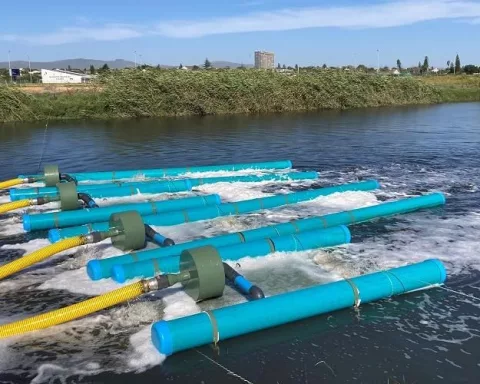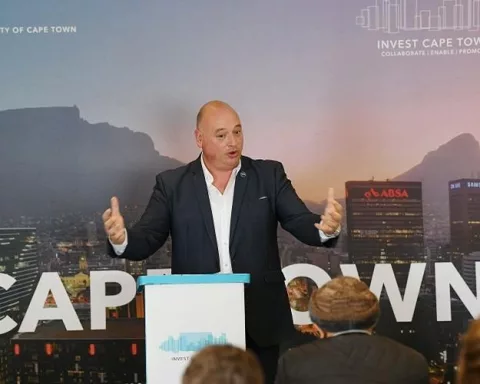Cape Town’s procurement strategy has successfully procured necessary goods and services at rates below the market average through a comprehensive approach. The Value for Money Report highlights the importance of transparency in building public trust and promoting competitive economic activity. The city’s procurement success sets a standard for other cities and enables better public value while maintaining fiscal integrity. The comprehensive approach includes negotiations, fit-for-purpose evaluations, and good governance to ensure efficient procurement and optimal resource utilization.
Cape Town’s procurement strategy successfully procured 79% of required goods and services below the going market rates through a comprehensive tactic that capitalizes on economies of scale, utilizes firm negotiation strategies, and harnesses competitive pricing from suppliers. The city’s Value for Money Report highlights the importance of transparency in bolstering public trust in the city’s prudent management of public funds and provides suppliers with a glimpse into the city’s commercial environment. This success sets a standard for other cities in maximizing resources to deliver better value for the public while maintaining stringent financial discipline.
A New Benchmark in Public Spending
The City of Cape Town holds a distinguished position within the realm of public expenditure and service provision. As illustrated in its premier Value for Money Report, the city has adeptly procured 79% of required goods and services below the going market rates. This report, recently unveiled by Mayor Geordin Hill-Lewis, thoroughly examines over 2000 contracts and 300 essential commodities, all crucial to the city’s service delivery in the fiscal year 2021/22.
The procurement strategy adopted by the city is a three-pronged approach: capitalizing on economies of scale, utilizing firm negotiation strategies, and harnessing competitive pricing from suppliers. This comprehensive tactic has culminated in a remarkable 79% of purchases made at rates lower than the market average, while an extra 6% were procured at existing market prices.
The Value for Money Report is more than a collection of figures; it offers a clear picture of the city’s expenditure on goods and services essential to its operations. It also details about 300 key commodities required for municipal activities.
The Power of Transparency
The accessibility of such information bolsters public trust in the city’s prudent management of public funds. Additionally, it provides suppliers with a glimpse into the city’s commercial environment, representing a mutually beneficial situation. Mayor Hill-Lewis has boldly invited other metros to adopt similar transparency measures, pushing for an increase in competitive economic activity and public value derived from municipal expenditure – a much-needed boost in the face of current budget constraints.
The successful procurement outcomes pave the way for Cape Town’s ambitious infrastructure spending plans. With a budget of R43bn set aside for the upcoming three years, Cape Town’s forecasted expenditure surpasses that of Johannesburg and Durban combined.
Mayor Hill-Lewis highlighted the importance of establishing resilient institutions and preserving transparency. The focus on fiscal integrity underscores a government committed to progress – a government that aims for consistent growth, significant infrastructure development, and the strengthening of the social safety net.
Success Stories of Procurement
Cape Town’s procurement successes are manifestly apparent in the price comparison of necessary goods and services. The prices secured by the city, from road construction gravel to CCTV camera systems, unequivocally affirm the city’s dedication to value for money.
Contrastingly, the City’s prices are dramatically lower when compared with infamous price gouging incidents, for instance, Eskom’s exorbitant pricing. The cost efficiency attained by Cape Town in relation to Eskom’s prices underscores the efficacy of the city’s dynamic SCM Policy, promoting price negotiations with tenderers.
The City’s negotiations approach is systematically layered, beginning with the top-scoring bidder and moving on to successive bidders if an agreement isn’t reached. This process is equitable and transparent, preventing any bidder from gaining an unjust advantage or a second chance at the expense of others.
Beyond Pricing: The Comprehensive Approach
The Value for Money Report also draws attention to the 15% of procurements made above the market rates. These are chiefly due to factors like limited bidders, specialized services, supply constraints, unfavorable exchange rates, and the complexities of regulatory or local content requirements.
In an age where preferential procurement could potentially undermine value for money, Cape Town’s procurement strategy sets a standard for other cities. The city recognizes the importance of maximizing their resources, thereby enabling a larger portion of residents to enjoy state services.
While the procurement of goods and services is a vital aspect of a city’s operations, the report also underlines the significance of reasonable pricing. Considerations like fit-for-purpose evaluations, delivery times, quality, and appropriate specifications are all factored in, along with existing market prices.
A Model of Efficient Procurement
In conclusion, the City of Cape Town’s procurement efficiency encompasses more than just securing the best prices; it also involves good governance. This is achieved through a sophisticated assurance module that includes internal audits, investigations, self-reviews, risk management, and departmental corrective plans. Ultimately, the city is proving that it is feasible to deliver better value for the public while maintaining stringent financial discipline.
1. What is Cape Town’s procurement strategy?
Cape Town’s procurement strategy is a comprehensive approach that includes negotiations, fit-for-purpose evaluations, and good governance to ensure efficient procurement and optimal resource utilization. This strategy capitalizes on economies of scale, utilizes firm negotiation strategies, and harnesses competitive pricing from suppliers to procure necessary goods and services at rates below the market average.
2. How successful has Cape Town’s procurement strategy been?
Cape Town’s procurement strategy successfully procured 79% of required goods and services below the going market rates, while an extra 6% were procured at existing market prices. This success sets a standard for other cities in maximizing resources to deliver better value for the public while maintaining stringent financial discipline.
3. How does transparency play a role in Cape Town’s procurement strategy?
The Value for Money Report highlights the importance of transparency in bolstering public trust in the city’s prudent management of public funds and provides suppliers with a glimpse into the city’s commercial environment. The accessibility of such information represents a mutually beneficial situation that Mayor Hill-Lewis has boldly invited other metros to adopt similar transparency measures, pushing for an increase in competitive economic activity and public value derived from municipal expenditure.
4. What sets Cape Town’s procurement strategy apart from others?
Cape Town’s procurement strategy sets a standard for other cities by not only securing the best prices but also incorporating good governance. This is achieved through a sophisticated assurance module that includes internal audits, investigations, self-reviews, risk management, and departmental corrective plans.
5. How does Cape Town’s procurement strategy address factors that lead to procurements made above market rates?
The Value for Money Report draws attention to the 15% of procurements made above the market rates due to factors like limited bidders, specialized services, supply constraints, unfavorable exchange rates, and complexities of regulatory or local content requirements. Cape Town’s procurement strategy recognizes the importance of maximizing their resources, enabling a larger portion of residents to enjoy state services, while still factoring in considerations like fit-for-purpose evaluations, delivery times, quality, and appropriate specifications.
6. What other benefits does Cape Town’s procurement strategy offer?
The City of Cape Town’s procurement strategy provides a clear picture of the city’s expenditure on goods and services essential to its operations, along with details about 300 key commodities required for municipal activities. This information bolsters public trust in the city’s prudent management of public funds and provides suppliers with a glimpse into the city’s commercial environment, representing a mutually beneficial situation. Additionally, Cape Town’s procurement successes pave the way for its ambitious infrastructure spending plans, with a budget of R43bn set aside for the upcoming three years, surpassing that of Johannesburg and Durban combined.












